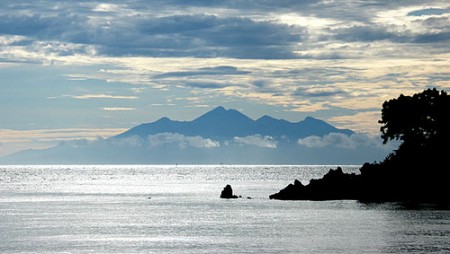
When the history of the first decades of the 21st century is written, the US military detention facility at Guantanamo Bay Naval Base in Cuba is likely to feature prominently. In the end, ‘Gitmo’ will always be synonymous with humanitarian abuses and allegations of American war crimes perpetrated as part of the ‘war on terror.’
The general story is well known: Since “Afghanistan was a failed state”, the Geneva Conventions did not apply to those captured there, or so the Justice Department reasoned. Because the naval base at Guantánamo Bay was not officially sovereign American territory, detainees were not entitled to the protections of the American legal system. Indeed, the site at Guantánamo was chosen for exactly this reason, in order to create a legal black hole. Because the area was only under US control thanks to a lease from the Cuban government, summary detentions could not be challenged by a writ of habeas corpus — meaning detainees could be held arbitrarily and indefinitely.
Note: For an enlightening discussion of the legal issues and ‘imperial history’ of the naval base, see Amy Kaplan’s article, “Where is Guantanamo?“. For Guantanamo’s role in the ‘War on Terror,’ the documentary “Taxi to the Dark Side,” is an excellent resource, among countless others.
As opposition mounted, the legal loopholes that made Guantanamo what it was were eventually challenged, and Obama has promised to close the facility. Though it currently remains open, the political climate has changed and it is tempting to see the whole episode as an aberration: a black mark, to be sure, but perhaps a solitary, isolated one.
According to Alison Mountz, however, this is a temptation that should be resisted. Guantanamo, she argues, is part of a wider phenomenon related to the changing nature of sovereignty. As Mountz argues in the March issue of Political Geography, Guantanamo is “too readily explained as ‘exceptional.’” Individually, detention practices on islands (in particular) “appear ad hoc, circumstantial matters of convenience, physical geography, and proximity” when in actual fact islands have become “sites of creative exercises in power” and “of territorial struggle among nation-states.” This, in other words, is “a global spatial pattern.”
Consider four of Mountz’s examples:
Esquimalt Naval Base, Vancouver Island, Canada
Guam, Micronesia, USA
Lombok, Indonesia
Lampedusa, Italy
Offshore islands have always had special geopolitical significance, perhaps most durably as foci for the projection of military power onshore. But where conflict is increasingly proceduralized and legalized, where explicit violence has higher costs than ever before, territorial disputes are displaced into other spheres and islands have assumed a new kind of strategic value.
Today, at least in some parts of the world, with the securitization of migration, transnational crime, terrorism, and related issues, the biopolitical powers associated with sovereignty are becoming more important than the military-political ones. In this changing landscape, islands have become powerful weapons for the management of borders and the control of persons and populations. Indeed, as Mountz writes: “A global constellation of European, Australian, and North American islands function as strategic sites of migration management where disputes over legality, access, and sovereignty erupt.”
In the map below, showing some of the most prominent islands used to detain asylum seekers, one gets a sense of this emerging constellation.
Mountz stresses that much research and inquiry is still needed to understand the new role of islands in international politics. Happily, much is in fact being done in (among other places) the field of nissology (from the Greek nisos, meaning island), which asks foundational question such as “whether a coherent theory of island-ness is possible” and laments “the unfair prejudice that island studies seems to suffer at the present time” at the hands of the “dominant continental paradigm.” If Mountz is right about the importance of islands, we may soon be hearing much more about this.


2 replies on “Islands and the Changing Face of Sovereignty”
[…] Alison Mountz, citato in “Islands and the Changing Face of Sovereignty”The ISN […]
[…] Alison Mountz, citato in “Islands and the Changing Face of Sovereignty”The ISN […]